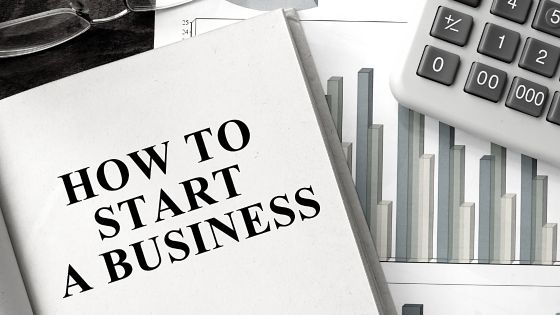Running a business in the United States often requires access to financing — whether it’s a small business loan, vendor credit, or a corporate credit card. But before any lender or supplier decides to trust your company, they look at one crucial factor: your business credit score.
For many entrepreneurs, this concept feels mysterious. What exactly is a business credit score? How is it different from personal credit? And most importantly, how can you build and maintain a strong score that helps your business thrive?
This comprehensive guide will answer all those questions — and more — using verified financial data, expert-backed insights, and scientific explanations of how credit assessment systems work in the U.S.
What Is a Business Credit Score?
A business credit score measures a company’s financial reliability and likelihood of repaying debts. Similar to a personal credit score, it’s used by lenders, vendors, insurers, and even potential business partners to assess financial trustworthiness.
However, unlike personal credit scores, which typically range from 300 to 850, business credit scores usually fall between 0 and 100 (depending on the credit bureau).
A higher score indicates lower risk and increases your chances of:
- Securing business loans or credit lines
- Qualifying for better interest rates
- Building strong vendor relationships
- Attracting investors or partners
The Major Business Credit Bureaus in the U.S.
In the United States, three primary credit bureaus track and report on business credit activity. Each uses its own scoring model and data sources.
| Credit Bureau | Score Range | Primary Score Type | Main Focus |
|---|---|---|---|
| Dun & Bradstreet (D&B) | 0–100 | PAYDEX Score | Payment history and vendor reliability |
| Experian Business | 0–100 | Intelliscore Plus | Risk of default and financial stability |
| Equifax Business | 101–992 | Business Credit Risk Score | Likelihood of delinquency or bankruptcy |
1. Dun & Bradstreet (D&B) PAYDEX Score
This is the most widely used business credit score. It evaluates your payment history with suppliers and creditors.
- 80 or higher: Excellent (pays bills on time or early)
- 50–79: Moderate risk (pays 15–30 days late)
- Below 50: High risk (pays 60+ days late)
You’ll need to request a D-U-N-S® Number (a nine-digit business identifier) to establish your credit profile with D&B.
2. Experian Intelliscore Plus
Experian’s model considers payment history, public records, collections, and business size.
- 76–100: Low risk
- 51–75: Medium risk
- 0–50: High risk
Experian also integrates your business credit utilization and company background data — making it especially relevant for small and medium enterprises.
3. Equifax Business Credit Risk Score
Equifax evaluates payment trends, bankruptcy risk, and delinquency likelihood.
Scores range from 101 to 992, with higher numbers indicating stronger creditworthiness.
How Is a Business Credit Score Calculated?
Each bureau uses a unique formula, but the following factors universally influence your score:
| Factor | Impact on Score | Example of Influence |
|---|---|---|
| Payment history | High | Late or missed payments reduce your PAYDEX score |
| Credit utilization | Medium | Using too much of your available credit lowers score |
| Business age | Moderate | Older businesses with consistent credit improve scores |
| Public records | High | Bankruptcies, liens, or judgments drastically reduce score |
| Industry risk | Moderate | Certain industries (construction, hospitality) are higher-risk |
| Company size and revenue | Low–Moderate | Larger firms often have more stable profiles |
A 2023 study by the Harvard Business School found that small businesses with well-maintained credit histories had a 35% higher chance of securing financing than those with limited or poor credit data.
Business Credit vs. Personal Credit: What’s the Difference?
While both reflect creditworthiness, they serve distinct purposes and are governed by different laws.
| Aspect | Business Credit | Personal Credit |
|---|---|---|
| Score Range | 0–100 (D&B/Experian), 101–992 (Equifax) | 300–850 (FICO, VantageScore) |
| Data Sources | Trade lines, vendor accounts, business loans | Credit cards, mortgages, personal loans |
| Credit Bureaus | D&B, Experian Business, Equifax Business | Experian, Equifax, TransUnion |
| Legal Protection | No FCRA protection | Covered by the Fair Credit Reporting Act (FCRA) |
| Impact on Loans | Determines business loan eligibility | Used for personal credit approval |
Many new business owners make the mistake of relying solely on personal credit for their ventures. While this may work short-term, separating your finances helps protect your personal assets and build long-term business credibility.
Why Business Credit Matters
A strong business credit score offers far more than better loan terms. It can determine whether your company thrives or struggles in competitive U.S. markets.
1. Easier Access to Financing
Banks and lenders like Chase, Wells Fargo, and American Express use business credit data to evaluate loan applications. A high score increases your likelihood of approval and can lower interest rates by several percentage points.
2. Better Supplier and Vendor Terms
Suppliers often extend net-30 or net-60 terms to businesses with good credit, allowing you to buy materials upfront and pay later — improving cash flow.
3. Protection of Personal Finances
With established business credit, you won’t need to use personal credit cards or guarantee every loan yourself, reducing risk to your family’s finances.
4. Insurance and Leasing Benefits
Some insurers and landlords check business credit when setting premiums or rent terms. Strong credit can save your company hundreds or thousands annually.
How to Build a Strong Business Credit Score
Establishing business credit doesn’t happen overnight. It requires consistency, strategic planning, and responsible management. Here’s a step-by-step roadmap every American entrepreneur can follow.
Step 1: Register Your Business Properly
- Form a separate legal entity (LLC or Corporation) through your state.
- Obtain an EIN (Employer Identification Number) from the IRS.
- Apply for a D-U-N-S Number with Dun & Bradstreet.
This step formally separates your business from personal finances — a foundation for credit reporting.
Step 2: Open a Business Bank Account
Keep business income and expenses separate. Most U.S. banks report activity to credit bureaus if you use business credit cards or loans responsibly.
Step 3: Establish Vendor Trade Lines
Start small by working with suppliers who report payments to D&B or Experian. Examples include:
- Uline
- Quill
- Grainger
Pay invoices early to build a strong PAYDEX score.
Step 4: Apply for a Business Credit Card
Use cards from major banks like Capital One Spark Business, Chase Ink Business Preferred, or American Express Blue Business. Keep utilization under 30%.
Step 5: Monitor Your Credit Reports
Check your reports quarterly for errors or outdated information. You can access them via:
- Dun & Bradstreet CreditSignal® (free monitoring tool)
- Experian Business Credit Advantage
- Equifax Small Business Credit Reports
Step 6: Maintain Low Debt and On-Time Payments
Consistent, timely payments are the strongest signal of financial responsibility.
A 2022 University of Pennsylvania Wharton School study confirmed that timely payments correlate strongly with long-term business survival rates and credit growth.
Factors That Can Hurt Your Business Credit Score
Even minor financial missteps can lower your business credit standing. Avoid these pitfalls:
| Mistake | Impact on Credit | Prevention Tip |
|---|---|---|
| Late or missed payments | Major | Set up auto-pay or calendar reminders |
| High credit utilization | Moderate | Keep balances under 30% of credit limit |
| Ignoring public records | Major | Resolve liens and judgments quickly |
| Too many loan applications | Moderate | Space out applications by at least 6 months |
| Not monitoring credit reports | Moderate | Review reports quarterly for inaccuracies |
How Lenders Use Business Credit Scores
Banks, credit unions, and fintech lenders use business credit scores to assess the risk of lending.
Lenders typically analyze:
- Your PAYDEX or Intelliscore rating
- Debt-to-income ratio
- Revenue trends
- Industry performance
For instance, a score above 80 at Dun & Bradstreet may qualify you for low-interest SBA loans, while a score below 50 may lead to rejection or higher collateral demands.
A Stanford Graduate School of Business report found that lenders are 50% more likely to approve small business loans when credit transparency and financial record-keeping are consistent and verifiable.
The Role of Business Credit in the Digital Era
With the rise of fintech platforms like Brex, Nav, and Divvy, business credit is evolving into a data-driven ecosystem. Artificial intelligence now analyzes not just payment behavior but also transaction data, payroll consistency, and social proof to determine creditworthiness.
Moreover, online marketplaces and e-commerce lenders increasingly rely on alternative credit models — combining financial data with behavioral analytics to offer customized financing for startups and freelancers.
This trend, supported by research from MIT Sloan School of Management (2023), shows that AI-based credit scoring models can accurately predict default risks for small businesses with 30% higher accuracy than traditional methods.
How to Check and Improve Your Business Credit Score for Free
While full credit reports often require a subscription, you can monitor your business credit activity for free using these resources:
| Platform | Cost | Credit Bureau Covered | Features |
|---|---|---|---|
| D&B CreditSignal | Free | Dun & Bradstreet | Alerts for score changes |
| Nav.com | Free & paid plans | D&B, Experian, Equifax | Score monitoring & financing recommendations |
| Experian Business Basic | Free trial | Experian | Limited credit data view |
| Equifax Small Business | Paid | Equifax | Comprehensive risk analysis |
Common Myths About Business Credit Scores
Myth #1: Personal Credit Doesn’t Affect Business Loans
False. Many lenders check both your personal and business credit, especially for small businesses and startups without long credit histories.
Myth #2: Paying Vendors Late Once Won’t Matter
Even one late payment can hurt your PAYDEX score, which measures payment timeliness precisely.
Myth #3: All Vendors Report to Credit Bureaus
Not all do. Always confirm whether your suppliers report your payment activity to D&B, Experian, or Equifax.
Myth #4: New Businesses Can’t Build Credit
Any registered business can start building credit within months by maintaining trade lines and a dedicated credit card.
Frequently Asked Questions (FAQs)
1. What is considered a good business credit score in the U.S.?
A PAYDEX score of 80+, Intelliscore above 76, or Equifax score over 700 is generally viewed as excellent and indicates strong financial reliability.
2. How long does it take to build business credit?
With consistent payments and vendor relationships, most businesses can establish a solid credit profile within 6–12 months.
3. Does my business credit affect my personal credit?
Not directly, unless you’ve personally guaranteed loans. Keeping your finances separate helps protect personal credit from business debt.
4. Can I rebuild bad business credit?
Yes. Pay overdue accounts, resolve liens, and demonstrate at least 12 months of on-time payments to improve your rating.
5. Do LLCs automatically have business credit?
No. You must actively register with credit bureaus and use business credit accounts to generate credit activity.
6. Can startups without revenue get a business credit card?
Yes — some issuers like Brex or Ramp base approval on cash flow or investor backing rather than traditional credit scores.
7. Are business credit reports public?
Unlike personal credit, business credit reports are public and can be accessed by lenders, vendors, and potential partners.




